
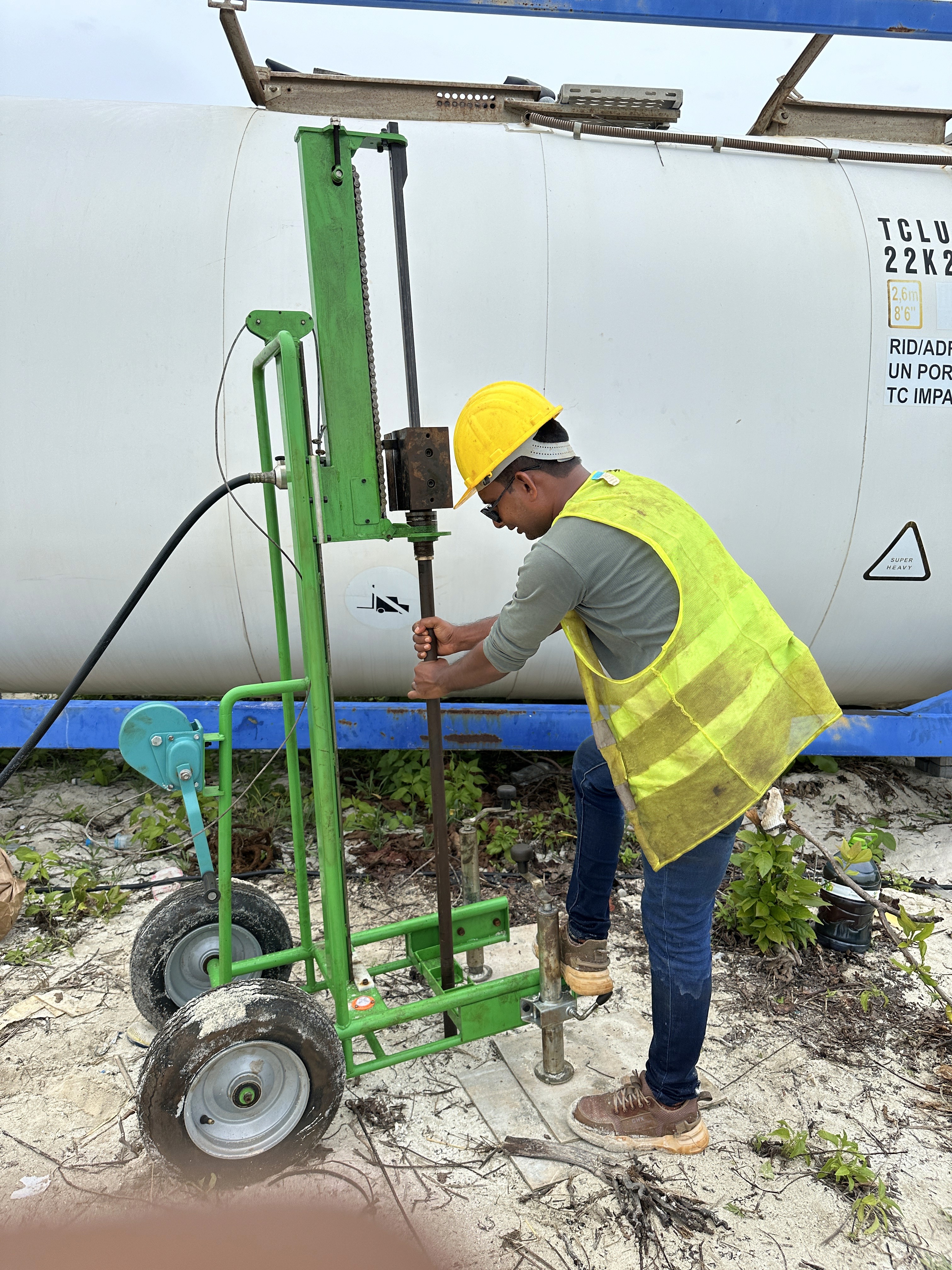

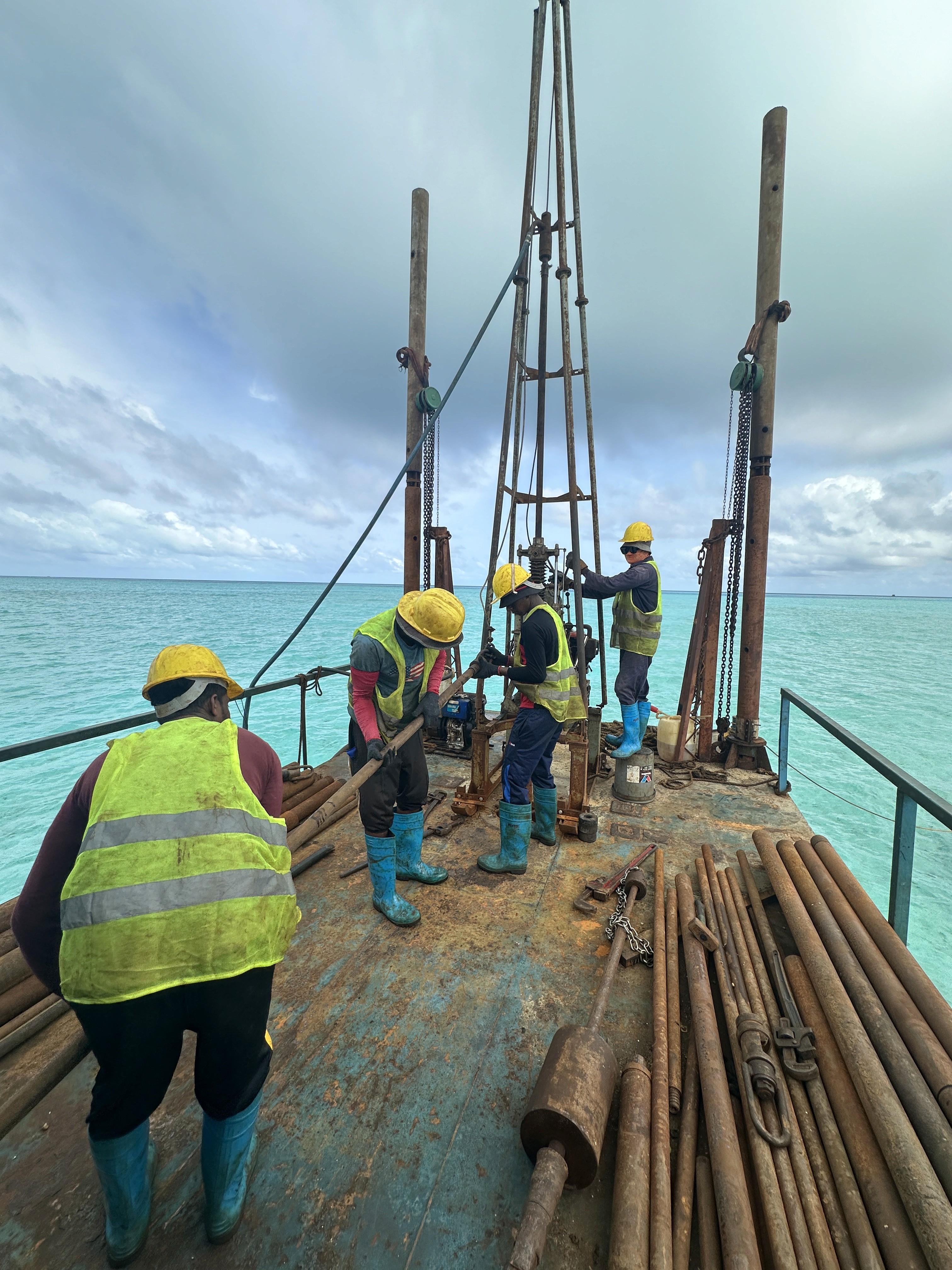

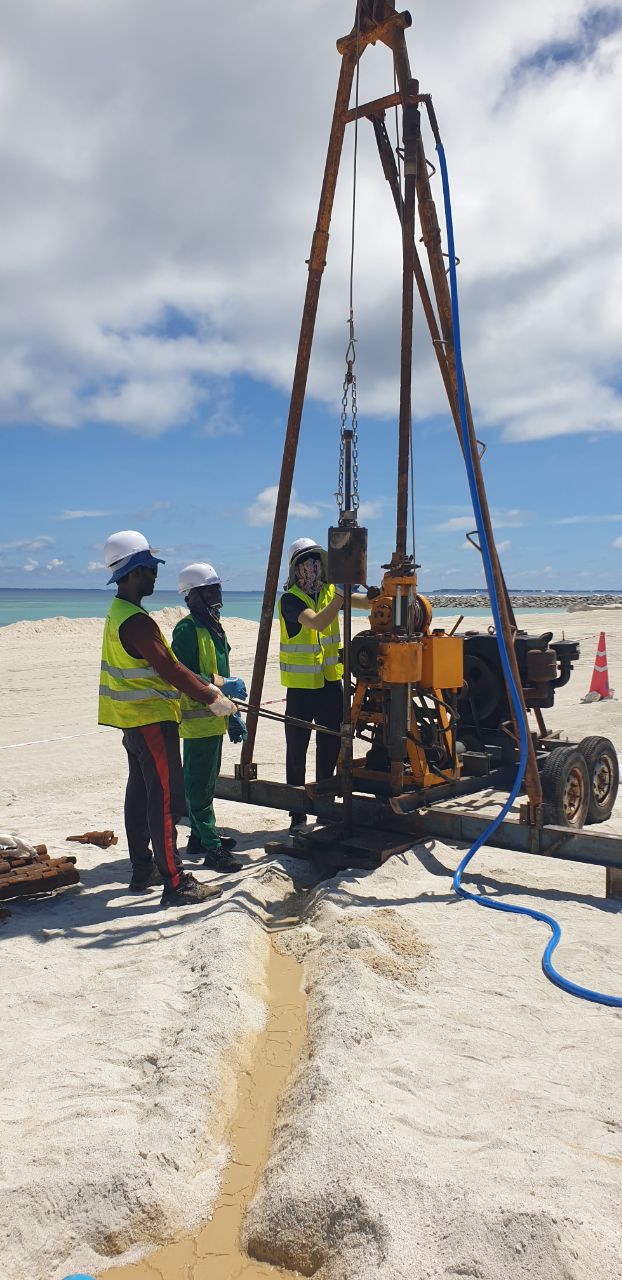

Building sustainable islands, one foundation at a time
Building sustainable islands, one foundation at a time
And more…
And more…
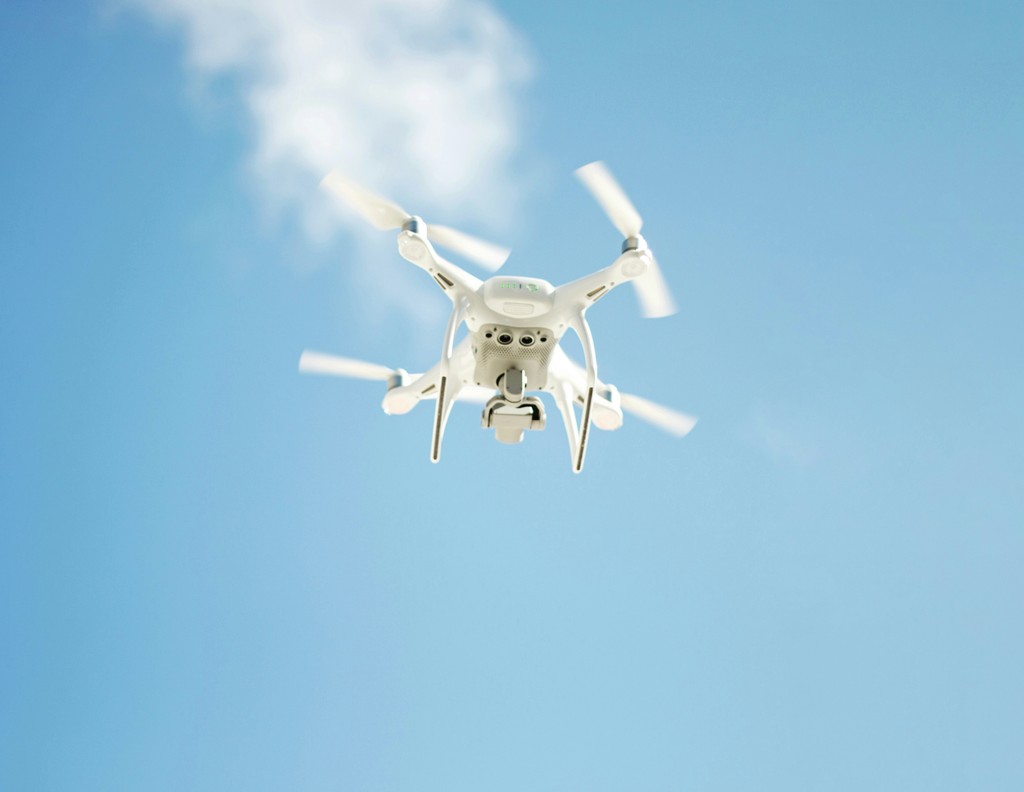

Environmental Monitoring
SIDCO's environmental monitoring services provide the data and insights you need to minimize your project's ecological footprint and ensure compliance with Maldives' environmental regulations. Our expert team offers comprehensive, tailored monitoring programs covering all key environmental aspects, from water and air quality to marine ecosystems and coastal processes. Navigate the regulatory landscape with confidence and contribute to a sustainable future for the Maldives with SIDCO.
SIDCO's environmental monitoring services provide the data and insights you need to minimize your project's ecological footprint and ensure compliance with Maldives' environmental regulations. Our expert team offers comprehensive, tailored monitoring programs covering all key environmental aspects, from water and air quality to marine ecosystems and coastal processes. Navigate the regulatory landscape with confidence and contribute to a sustainable future for the Maldives with SIDCO.
Read More
Geotechnical Investigation
Our geotechnical engineering solutions are the invisible backbone of thriving islands. We delve into the depths, analyzing soil and rock formations to design foundations that stand the test of time. From towering structures to intricate coastal projects, we build with confidence, ensuring stability and minimizing risk.
Our geotechnical engineering solutions are the invisible backbone of thriving islands. We delve into the depths, analyzing soil and rock formations to design foundations that stand the test of time. From towering structures to intricate coastal projects, we build with confidence, ensuring stability and minimizing risk.
Read More


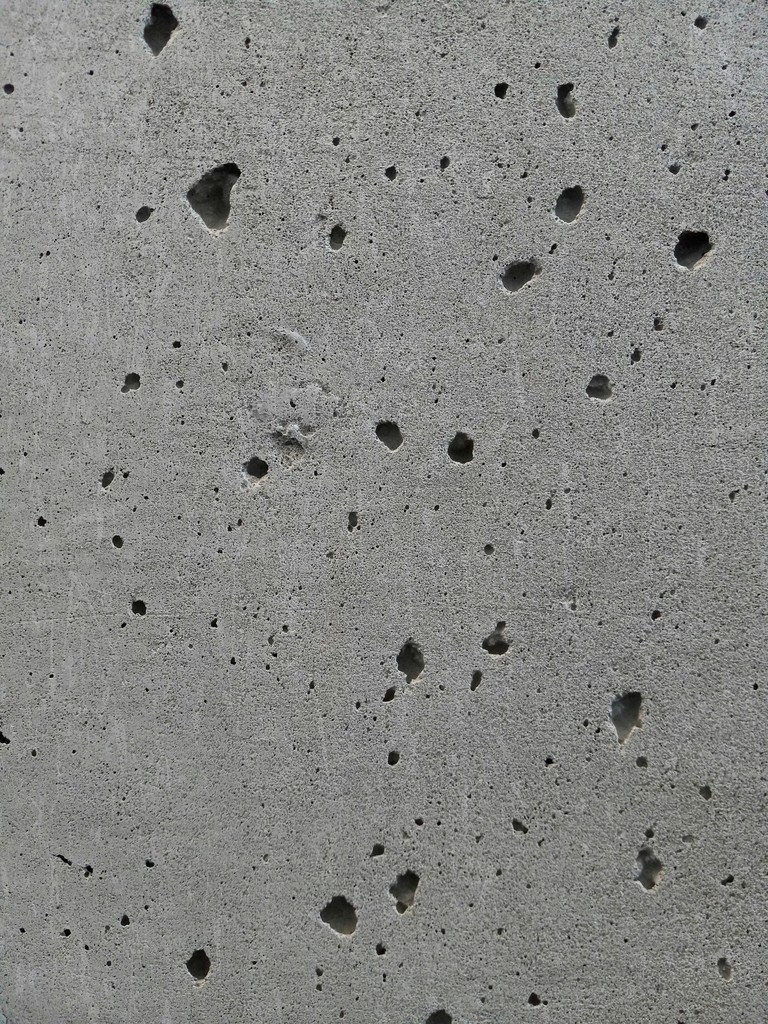

Material Lab
Our laboratory provides precise and reliable testing services essential for ensuring the quality, safety, and compliance of your projects in the Maldives. Our comprehensive suite of tests covers a wide range of parameters, from soil and water analysis to material testing and environmental monitoring. With SIDCO's laboratory services, you gain access to accurate data, expert analysis, and timely reporting, giving you the confidence to make informed decisions and achieve project success.
Our laboratory provides precise and reliable testing services essential for ensuring the quality, safety, and compliance of your projects in the Maldives. Our comprehensive suite of tests covers a wide range of parameters, from soil and water analysis to material testing and environmental monitoring. With SIDCO's laboratory services, you gain access to accurate data, expert analysis, and timely reporting, giving you the confidence to make informed decisions and achieve project success.
Read More
Read More


Free regulatory audit.
We offer a complimentary service of a one-time compliance audit, to identify any obligations you may have under existing regulations for monitoring.*
* Terms apply.
Solutions
Solutions
Solutions
Geological and Geotechnical Site Assessment
Conducting a comprehensive geological and geotechnical site investigation to understand the local soil and rock conditions. Identifying geological features, groundwater conditions, and potential hazards that may impact the stability of structures and infrastructure.
Geological and Geotechnical Site Assessment
Conducting a comprehensive geological and geotechnical site investigation to understand the local soil and rock conditions. Identifying geological features, groundwater conditions, and potential hazards that may impact the stability of structures and infrastructure.
Geological and Geotechnical Site Assessment
Conducting a comprehensive geological and geotechnical site investigation to understand the local soil and rock conditions. Identifying geological features, groundwater conditions, and potential hazards that may impact the stability of structures and infrastructure.
Climate Change Impact Assessment
Assessing the potential impacts of climate change on the island’s geotechnical conditions, such as sea level rise, increased storm intensity, and changes in precipitation patterns. Incorporating climate resilience into geotechnical designs to ensure infrastructure can withstand future environmental changes.
Climate Change Impact Assessment
Assessing the potential impacts of climate change on the island’s geotechnical conditions, such as sea level rise, increased storm intensity, and changes in precipitation patterns. Incorporating climate resilience into geotechnical designs to ensure infrastructure can withstand future environmental changes.
Climate Change Impact Assessment
Assessing the potential impacts of climate change on the island’s geotechnical conditions, such as sea level rise, increased storm intensity, and changes in precipitation patterns. Incorporating climate resilience into geotechnical designs to ensure infrastructure can withstand future environmental changes.
Sustainable Foundation Design
Designing foundations that consider the island’s unique geological and environmental conditions. Implementing sustainable foundation solutions, such as using recycled materials or innovative foundation technologies, to minimize environmental impact.
Sustainable Foundation Design
Designing foundations that consider the island’s unique geological and environmental conditions. Implementing sustainable foundation solutions, such as using recycled materials or innovative foundation technologies, to minimize environmental impact.
Sustainable Foundation Design
Designing foundations that consider the island’s unique geological and environmental conditions. Implementing sustainable foundation solutions, such as using recycled materials or innovative foundation technologies, to minimize environmental impact.
Coastal Protection and Erosion Control
Designing coastal protection structures and erosion control measures to safeguard the island’s shoreline. Incorporating eco-friendly solutions and considering the preservation of coastal ecosystems in the design of protective measures.
Coastal Protection and Erosion Control
Designing coastal protection structures and erosion control measures to safeguard the island’s shoreline. Incorporating eco-friendly solutions and considering the preservation of coastal ecosystems in the design of protective measures.
Coastal Protection and Erosion Control
Designing coastal protection structures and erosion control measures to safeguard the island’s shoreline. Incorporating eco-friendly solutions and considering the preservation of coastal ecosystems in the design of protective measures.
Waste Management and Contamination Control
Addressing potential issues related to waste disposal and contamination in geotechnical engineering projects. Implementing sustainable practices for managing construction waste and preventing soil and groundwater contamination.
Waste Management and Contamination Control
Addressing potential issues related to waste disposal and contamination in geotechnical engineering projects. Implementing sustainable practices for managing construction waste and preventing soil and groundwater contamination.
Waste Management and Contamination Control
Addressing potential issues related to waste disposal and contamination in geotechnical engineering projects. Implementing sustainable practices for managing construction waste and preventing soil and groundwater contamination.
Community Engagement and Social Impact Assessment
Engaging with local communities to understand their needs, concerns, and traditional knowledge about the island’s geotechnical conditions. Conducting social impact assessments to ensure that geotechnical projects are aligned with the sustainable development goals of the community.
Community Engagement and Social Impact Assessment
Engaging with local communities to understand their needs, concerns, and traditional knowledge about the island’s geotechnical conditions. Conducting social impact assessments to ensure that geotechnical projects are aligned with the sustainable development goals of the community.
Community Engagement and Social Impact Assessment
Engaging with local communities to understand their needs, concerns, and traditional knowledge about the island’s geotechnical conditions. Conducting social impact assessments to ensure that geotechnical projects are aligned with the sustainable development goals of the community.
Community Engagement and Social Impact Assessment
Engaging with local communities to understand their needs, concerns, and traditional knowledge about the island’s geotechnical conditions. Conducting social impact assessments to ensure that geotechnical projects are aligned with the sustainable development goals of the community.
Community Engagement and Social Impact Assessment
Engaging with local communities to understand their needs, concerns, and traditional knowledge about the island’s geotechnical conditions. Conducting social impact assessments to ensure that geotechnical projects are aligned with the sustainable development goals of the community.
Community Engagement and Social Impact Assessment
Engaging with local communities to understand their needs, concerns, and traditional knowledge about the island’s geotechnical conditions. Conducting social impact assessments to ensure that geotechnical projects are aligned with the sustainable development goals of the community.
Contact Us
Stay informed about the latest developments in environmental monitoring and sustainable development in the Maldives. Sign up for regular posts and receive expert insights, industry highlights, and regulatory updates directly to your inbox.
Stay informed about the latest developments in environmental monitoring and sustainable development in the Maldives. Sign up for regular posts and receive expert insights, industry highlights, and regulatory updates directly to your inbox.
Stay informed about the latest developments in environmental monitoring and sustainable development in the Maldives. Sign up for regular posts and receive expert insights, industry highlights, and regulatory updates directly to your inbox.